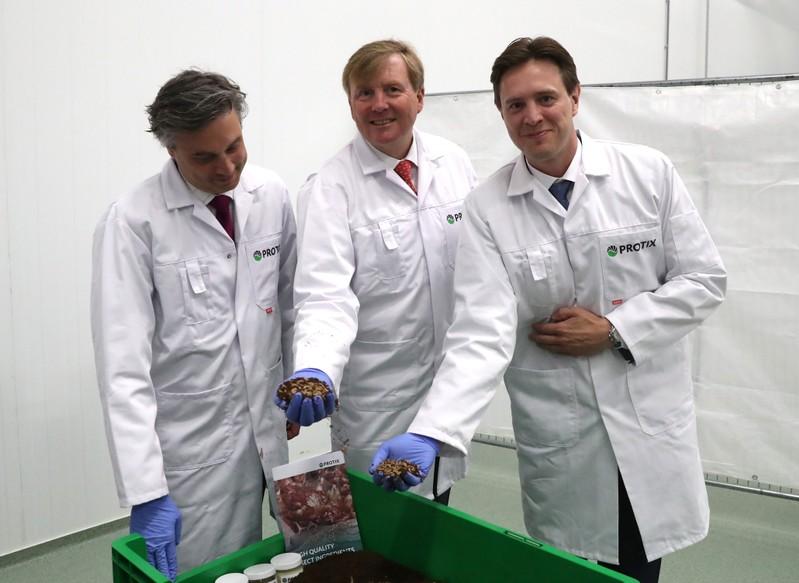Dutch firm generates buzz with big fly larvae farm
BERGEN OP ZOOM, Netherlands (Reuters) – Tiny fly larvae have Dutch firm Protix thinking big since it looks to supply enough fish food to make 100 million parts of salmon yearly.

On Tuesday, the firm opened the largest known farms specifically for producing insects in order to use in animal feed, precisely as it looks for boosting output of cheap, non-harmful to the environment protein.
The Netherlands’ King Willem Alexander attended the opening and donned gloves to work his hand by having a container of larvae.
“He was unafraid,” CEO Kees Aarts told Reuters in the interview.
Aarts described “the opinion of the energy that comes from website of the insect” as “beautiful”.
“They’re warm and they’re wiggly,” he explained.
Protix produces larvae belonging to the Black Soldier Fly, known for its rapid growth, on your base of plant waste under artificial light. At harvest time, the larvae are shaken free, washed, and ground into paste, Aarts said.
Its new, 14,000 square meter, 45 million euro ($51 million)production facility is found in the town of Bergen Op Zoom, close to the Belgian border.
The company separates the paste into protein and lipid (fat) products, because both versions are useful in feeds.
Feed giant Nutreco has signed a supply tackle Protix for use for the protein in fish feed. Protix also sells to egg-laying chicken farmers also to pet food makers, where it meets sales of animals that happen to be allergic to forms of protein.
European law currently prohibits using animal proteins in feed mixes for livestock and poultry for the purpose of human consumption, a legacy of measures delivered to prevent mad cow disease.
Protix is one of several firms lobbying for one exception to the next rule for insect protein, that isn’t linked to the disease.
The company sells leftover insect material as a general soil enricher.
Protix employs 130 people, 50 % them inside the Bergen op Zoom farm. Aarts said the corporation is looking to begin more farms within 2 years.
(The story corrects to point out leftover insect materials used as a soil enricher not as a fertilizer in paragraph 13.)

